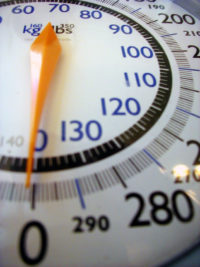Sleep Troubles
A study conducted by the National Sleep Foundation revealed that “35 percent of Americans report their sleep quality as “poor” or “only fair.” Twenty percent of Americans reported that they did not wake up feeling refreshed on any of the past seven days” (2015). Similarly, the CDC noted that one-third of Americans do not get enough sleep (sleeping less than 7 hours each night). This is NOT good.
Sleep is a necessary process of life – and it is crucial to the achievement of healthful living practices and habits. Unfortunately, we live in a 24/7 society that unconsciously forces individuals to sacrifice valuable shut-eye. If we take a moment to evaluate the extreme number of tasks and obligations we balance in a given day, we might not find these statistics so staggering. Life is busy. We have work obligations, family responsibilities, social events, travel, school, Twitter, Facebook, smartphones – the list goes on! Sleep is integrally related to overall health and well-being. Without it, several aspects of health are compromised.
Effects of Poor Quality & Low Quantity
Sleep – and not just a few minutes here and there – but real, quality rest is integrally related to every aspect of life and personal health. Deprivation is linked to lost productivity at work and at home, cognitive decline, motor vehicle accidents, relationship problems, depression, anxiety, and a compromised metabolism. Research even suggests that a chronic lack of sleep may be linked to the potential for early death. Say what?! Research also suggests that those who obtain less sleep are at greater risk for heart disease, obesity, and diabetes. Scary.
Sleep deprivation is a widespread personal and public health issue in America. However, there are ways to help address this issue on an individual level simply by practicing good “sleep hygiene”. Here are some suggestions to help you promote and practice quality sleep habits.
Improve Sleep Hygiene
 Be active! Regular physical activity has been shown to improve sleep. Prioritize fitting in activity during the day. This advice comes with a caveat – exercising too late in the evening or too close to bedtime may negatively impact one’s ability to sleep well. Another benefit of activity is its impact on daytime energy. Those who exercise regularly experience more energy throughout the day.
Be active! Regular physical activity has been shown to improve sleep. Prioritize fitting in activity during the day. This advice comes with a caveat – exercising too late in the evening or too close to bedtime may negatively impact one’s ability to sleep well. Another benefit of activity is its impact on daytime energy. Those who exercise regularly experience more energy throughout the day.

- Limit caffeine. Caffeine does wonders for attention and focus; however, caffeine too late in the afternoon may make it difficult to sleep. Some recommendations suggest avoiding caffeine as much as 8 hours before bed! The advice here – individuals who consume caffeine know how it affects them; be mindful of your personal intake. Also, be mindful of pain relievers or other medications that might contain caffeine.
- Limit alcohol. Too much alcohol can prevent a good night’s rest. This is not to say that a glass of wine with dinner is a negative practice. Certainly alcohol can have sedative-like effects; however, it also causes an individual to wake more often during the night.
- Block the Clock! Clock-watching can interfere with rest; it keeps your mind active and encourages you to worry about the number of hours you have left before the alarm buzzes. If you find yourself lying awake in bed, get out of bed and try reading a book or meditating to relax.
- Develop a ritual: Consider developing a pre-bedtime relaxation routine to help you disconnect from the day’s events. A warm bath, light yoga or soothing music can facilitate relaxation.
- Evaluate the sleep environment: Evaluate the sleep-ability of your bedroom.
- Remove devices like TV’s, laptops, phones, etc. to prevent distraction before bed.
- Allowing pets and children to sleep in your bed with you can cause disruptions. Limit the occurrence.
- Consider adding room-darkening curtains to limit the amount of light that enters the bedroom.
- Make sure the temperature in the room is right for you.
- Evaluate the noise level and make sure it is quiet.
- Tell your doctor: If you continue to experience sleep deprivation, speak with your physician. Generally, the amount of sleep a patient gets is not information gathered by a physician or nurse during an appointment. It is important to communicate your concerns with your primary care provider. If you suspect a sleep disorder, keep a journal to present to your doctor. Include times you go to bed, times you wake-up, and the time and amount of caffeine and alcohol consumed. It is also helpful to include physical activity in your journal. The information you include will assist your physician in identifying the heart of the issue. In some cases, behavior or prescription therapy is suggested.
 Improving sleep will ultimately improve personal health and decrease the risk for chronic disease development. For more information and research, visit the National Sleep Foundation (www.sleepfoundation.org), the Centers for Disease Control and Prevention (www.cdc.gov), or the National Institutes of Health (www.nih.gov).
Improving sleep will ultimately improve personal health and decrease the risk for chronic disease development. For more information and research, visit the National Sleep Foundation (www.sleepfoundation.org), the Centers for Disease Control and Prevention (www.cdc.gov), or the National Institutes of Health (www.nih.gov).
Sweet dreams, friends!


0 Comments